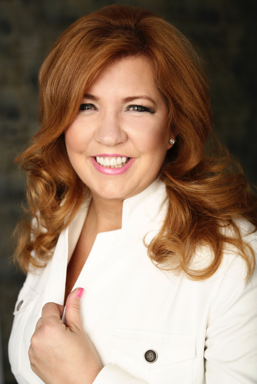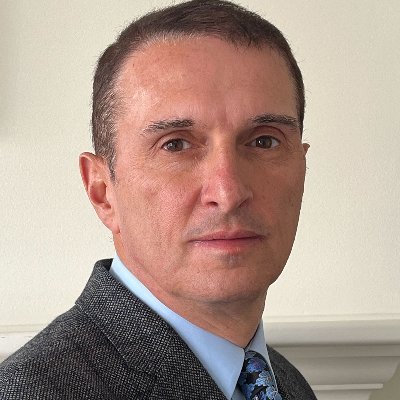Transcripts

Erik: Joining me now is Dr. Pippa Malmgren, former presidential adviser and best selling author. Pippa, it's great to get you back on the show. Holy cow have we got a lot to talk about this week. It worked out extremely well that we were getting all kinds of requests on email and Twitter saying with the news out of Russia this weekend, you got to get Pippa back on the show, and it worked out that we were able to get you. So let's start with the Russia news. What happened this past weekend was really pretty remarkable. We had the guy who's in charge of Wagner Security Services, that's Putin's private army that you have warned MacroVoices listeners about right here on this podcast in the past. These are the guys that are kind of the elite forces, they're at the front lines. This guy Prigozhin, who's in charge of them announces publicly, that he's had it with the Russian Defense Ministry, not backing them up. Apparently, there was some kind of friendly fire incident, some helicopters that were being operated by the Russian military ended up killing or potentially may have killed some of the fighters that were working on the front lines for Wagner. And this guy literally announced, I want the head of the Ministry of Defense. I want this guy's head delivered to me on a platter, where I am in Providence outside of Moscow. And if I don't get it immediately, I'm going to drop what we're doing in this war. We're going to turn around and go back to Moscow and I'm going to find this guy and take him out myself. Moscow obviously said no, what does he do? He turns the tanks on Moscow, and they're an hour out of Moscow, when all of the sudden a deal was made, and it all goes away. Pippa, what deal was made?
Pippa: It's such an extraordinary situation. And look, this is literally the new Kremlinology meaning no one really has a grip on the situation. But there are different scenarios that are worth playing around with. And there may be truth and all of them. You know, this is a moving puzzle. But I think, look, what matters is when it became clear that Russia was not able to win in Ukraine that a superpower with nuclear weapons that hugely outnumbered and outgunned the Ukrainians was not able to actually decisively win, then the blame game started on the Russian side. You know, whose fault is it? And you know, in Russia, you can't really go back and ask the question, is it the President's fault for starting it, partly because they have such a tradition in Russia that it's sort of implicitly assumed that the leader is pretty much appointed by God, right? It's a very medieval kind of thought process about leadership there. They never really had the Reformation, that meant that leadership came from the people, their view is leadership is still bestowed by mystical forces. And so you can't really challenge the leader in philosophical terms. But also, you can't do it practically, because every single person who even attempted to say uhm excuse me, but this is not working was pretty much immediately killed. And there's a long list of all of President Putin's formerly close allies that have suddenly ended up at the bottom of a building somewhere. And part of the trouble with that strategy of eliminating all of your inner circle is there's no inner circle left. And that was starting to happen.
Now others, like Prigozhin who had been very tightly aligned with President Putin, and as you say, effectively running a sort of private army on his behalf. Pregozhin starts to smell blood in the water that Putin can't get things done here. And so he goes to the front line, he basically says give me the front line, let me handle this. And the Russian military kind of went if you would like to do that, please be my guest, you go ahead. So he goes to the front line where he starts getting hurt, and immediately blames the Russian military. Now, let's back up a little bit because you got to understand the internal fight and really it's a civil war. The internal fight is between on one side, you have what they call the Siloviki, which is President Putin comes from the intelligence services which it used to be the KGB, then it became the FSB and they aligned pretty strongly with organized crime. And so that group has been in charge pretty much since Gorbachev left office and the Soviet Union ceased to exist, one way or another. And over those years, that group have benefited enormously financially and otherwise, from being the guys in charge. And now they've said to the military, we want you to execute this war on our behalf, and the military who are a totally separate group, they're looking at each other going hey, why are we doing this exactly? Because there's no compelling argument as to why we have to have this extremely bloody war with the Ukrainians who traditionally the Russians view as you know, brothers and sisters, right? It's kind of maybe like, you know, Northern Ireland and the Irish like, they have pretty good reasons. It's not even as divisive as the Irish because they tend to share the same religion as well. So then Putin basically says, I want you to use nuclear weapons, or we're going to get ready to use nuclear weapons, and he threatens the west with this. And the Russian military kind of go hey, I don't want to be executing a nuclear strike on behalf of a bunch of guys that have never helped me out. Right, that have never done anything for the Russian military. So then an internal fight begins and the Wagner teams start blaming the Russian military for insufficient ammunition, insufficient decent weapons and the Russian military are like, hey that's your war, right? You guys started this... Don't blame us so this blame game breaks out.
And then yes you say we had some maybe friendly fire. We've certainly had, you know, a contest between these two parties. And next thing, you know, the head of the Wagner group says okay this is ridiculous. I'm turning my guns on the Russian military. And I'm taking this whole thing to Moscow. And I've got a problem with the way President Putin is running all this because he's not running a very well and I could do a better job. Now, that alone is rather extraordinary. But maybe what Prigozhin sees is this possibility that, and I've even argued on your podcast that in a way, when the Soviet Union ceased to exist, it actually didn't go through the full sort of break up and restoration that it should have because the intelligence services took control of the country. So maybe we're witnessing the breakup of the Soviet Union now actually, it just got postponed, it got delayed by this intervention. But now there's this fight. So then we get to Prigozhin basically says, I'm going to Moscow and I'm against both Putin and the Russian military. And then 100 miles from Moscow, he suddenly turns around and goes back to this area of Rostov where he had been. And as you say, the question is why. Now we know that Lukashenko who has been the leader of Belarus and very closely aligned with President Putin seems to have flown out with his family at midnight, the night before Prigozhin announces that there's a deal. And weirdly turns off the transponders on his aircraft while they're over Russian AirSpace as they make their way to Bodrum in Turkey. So you're like okay, we now have the leader of Belarus, which, by the way, is where all of these Russian nuclear weapons have just been placed. Suddenly, he looks like he's bolting, but he ends up cutting a deal with Prigozhin. The question is, what was that deal? Now, there's some speculation that the two of them actually the three of them have been working together from the start, that this is all a ruse, literally, you know, that's the origin of that word is this is a Russian theatrical sleight of hand and that actually, Putin and Prigozhin were working together with Lukashenko to create this big story that actually allows the Russian forces in the Wagner forces to pull back without losing face. Right? because after all, they left the war zone that they were in with the Ukrainians. But they've ended up 100 miles closer to their Ukrainian targets than they were before. So is this just about repositioning or is it something more are profound and I can't help but look at the broader landscape and say, is it really a total coincidence that for the two weeks before this happened, the US and NATO were moving and NATO Allies were moving an enormous number of aircraft into Western Europe enough that it interfered with a lot of flight schedules.
Now, it was a long planned exercise. But nonetheless, did that send a signal to the Russian side that, you know after all, I've argued on this podcast, the war is not just in Ukraine, this is a much larger confrontation that's been happening in space, in the Arctic, in the Baltic, you know, in lots of different locations with submarine cables being cut to interrupt internet traffic. Was it that the West started to get really nervous that Putin was genuinely going to use a nuclear weapon and was going to escalate this war, and they were sending a message, don't even try. And that sends a message to Prigozhin and the Russian military. And then I personally just to finish, I've made the argument that actually, ironically, a good result from the western perspective would be if the Russian military emerged victorious from all this, because the thing is, Prigozhin and Wagner are arguably worse than Putin and would be less measured if they managed to get their hands on nuclear capability. Whereas the Russian military have, you know, a long tradition and understand the danger of nuclear weapons and are very likely to engage in talks with the West to de-escalate all of this. So I keep asking, where is Gerasimov who is the most respected person in the Russian military who's disappeared? It's not Shoigu who is the defense minister who's just a close ally of President Putin's but Gerasimov, where is he and what is his actual position? And until we see where is Gerasimov, it's kind of hard to judge this picture. But basically, it's an internal civil war is what we're witnessing.

Erik: Joining me now is Goehring & Rozencwajg co-founder Leigh Goehring. Leigh, it's great to get you back on the show. For any new listeners who didn't catch your last interview, I want to start by just setting the context for everyone. We had you and your partner Adam Rozencwajg on the show last year. Adam predicted that there is going to be an energy crisis in coming years. You predicted that there's going to be a food inflation and food price crisis in coming years. At the time, our feeling was we thought Adam's story was the one that was more imminent more likely to happen right away. We thought the food story was likely to play out in a longer timeframe. Seems like it's going the opposite way that the energy story hasn't happened yet. But boy, food inflation in the last six months has been really significant. What's driving it and why are things happening out of order?
Leigh: Erik, and thanks for having me back again. And I do remember talking extensively about global agricultural markets with you. Not much has changed from the last time you and I talked. I talked about what were the factors that were going to push the world into a global agricultural global food crisis. And what's interesting since then, a lot of that has happened. And you know, just to step back a little bit, you know, what were those factors that we believed were going to produce maybe one but potentially multiple food crises, agricultural crises as we progress through this decade. And one was the fact that is that over the last 20 years, we've seen a significant ratcheting up of the demand for global grain. And the underlying fundamental reason behind that is that never before have so many people been in that notch of disposable income, which basically goes from about $500 to $1,000 per capita GDP then goes through their expansion cycle and eventually reach 5-6-$7,000 per capita GDP. Never have there been so many people that have been going through that period in their economic cycle. And one of the things when you when you go through that increase in per capita GDP, you want to change your dietary preferences. You basically want to switch from, you know, subsisting primarily on starch, which would be wheat and rice primarily to enjoying a more protein animal protein-based diet. And I talked in our last interview that we had gone back and studied every emerging market economy since the late 1950s. And how they had gone through this transition. And we postulated that, that this was the reason why global grain consumption between 1980 and 2000 basically grew at about 1.3% per year, which is in line with population growth. And then all of a sudden, from 2000 to 2020 ratcheted up to over 2% per year. That's a big increase.
And, you know, we also said that, that those trends are going to continue as we go through this decade. And if you go back and just look at the, the USDA, the report is the world agricultural supply demand, a report that they put out once a month. You'll see that since 2018 to today, global grain consumption has grown an additional 6% just those last four years. So the thing is the underlying strong global grain demand trends are continuing. The other side of the potential agricultural crisis that was going to occur was changing weather patterns. And obviously, we're hearing a lot about how adverse weather conditions are affecting huge parts of the world. And it's being, you know, almost universally credited to global warming in the Related global warming climate change. But, you know, we take a little bit of a different view on that, we believe that we have just started the first part of a global cooling cycle. I know this is very, very contrarian. And you know, it's not something that a lot of people follow closely. But you know you know, you can call me crazy, you can call me out on the fringe. But I'm a big believer that there is a very loose, loose relationship between sunspot cycles and weather patterns. And one of the most interesting things is that in the last 20 years, we have been in a very pronounced declining sunspot cycle. And what's so interesting about that is, declining sunspot cycles have often been associated with periods of global cooling. And in periods of global cooling, I should point out weather patterns become much more disruptive to global grain producing regions. And that's exactly what we've seen in the last four or five years.
And I think this is just going to continue as we go through this decades. So, you still have very, very strong global grain demand. And that's brought about by the big increases in per capita GDP that's happening in multiple parts of the world, primarily in all the emerging markets. And this global grain boom is bumping up against very, very adverse weather patterns. And it's going to produce. It's produced the first leg of this crisis and as we go on and talk in this podcast, it's going to produce other crises as we go through this decade.

Erik: Joining me now is Bianco Research Founder, Jim Bianco. Jim, it's great to get you back on the show. It's been way too long. Let's start since it's an FOMC week. It will be yesterday to our listeners who are hearing this Thursday. It's this afternoon for you and I. FOMC met, what happened? What does it mean for inflation, for Fed policy, for bond rates, and so forth? What are we looking at?
Jim: Well, as everybody knows, the Fed did not raise rates for the first time in 14 months, 15 months. And the question is, is it up? You know, the terminology we're using... Is it a skip or is it a pause. Skip would mean that they are going to hold off by not raising rates for maybe one or two meetings. A pause would mean that they're not going to raise rates for several meetings, or which could eventually wind up into being the end of the cycle. The interesting thing that came out of the meeting, this was the quarterly meeting where they do the update of the dot chart, and the 2023 dot chart and that's all the members of the Fed put down where they think the funds rate is going to be, at the end of the year, showed that they think that we're going to have two more rate hikes this year. Two more 25-basis point rate hikes. Remember now, we have four meetings left. And so they're going to raise rates 50 basis points between now and the end of the year. Of the 18 members that filled out a dot, 16 of them had the rate head funds rate going up at least once. The two that didn't had it unchanged. So there's no rate cut that is being suggested here. So it's being referred to as a hawkish skip, because they really laid the groundwork for it. They stopped raising rates, but they're not done. And lastly, there is a precedent, because in the last couple of months this year, we've seen both the Reserve Bank of Australia and the central bank in Canada both stop raising rates saw inflation firm a little bit and then restarted raising rates. So there's been other central banks that have done the skip or the minor pause thing already this year.

Erik: Joining me now is Bill Blain, author of Blain's Morning Porridge and strategist for Shard Capital. Bill, it's great to get you back on the show. It's been way too long. Let's dive in and start with the topic on everyone's mind inflation and central banks. Are we really in a transitory inflation that's about to go away and be all over and done with as so many people want to tell us?
Bill: Well Erik, it's great to be back on! Transitory, that's a word from last year, we don't use transitory anymore. We talk about how sticky inflation is because that's what's changed the underlying narrative surrounding inflation has gone from the central bank's promising us inflation last year, to the numbers know telling us that wage pressures, supply chain pressures, producers trying to put up prices, because of supply chain pressures and wage demands, is all contributing to a very different inflation landscape. But I don't think we can blame the central banks for getting it completely wrong, because they are getting inflation, under control for the economy that we thought we had. But the problem is, we have a very, very different post-COVID economy and I am very happy to go into that in detail.

Erik: Joining me now is Ronnie Stoeferle, principal author of the In Gold We Trust report and fund manager at Incrementum. Ronnie, it happens each spring and it's that time of year, the In Gold We Trust report is out. Listeners, you'll find the download link for the full report as well as a slide deck that Ronnie prepared to accompany today's interview. Both of those links are in your research roundup email. Ronnie, let's start with just the big picture for people who might not be familiar with the report, which is kind of the event of the season in the precious metals world. How did this thing come into existence? Who's behind it? What's the motive for it? What's the purpose of it? What will people find in the report? And what's new and interesting, and what's maybe the most exciting thing this year?
Ronnie: Hi, Erik. Thanks for having me. And yeah, you said my name almost perfectly. It's a tough name for English speakers, but you're getting better every year, so congrats. Well I started publishing this report already 17 years ago, and it's an annual report and over the years, it became bigger and bigger. And now it's probably one of the most widely followed publications on gold. And the problem is that it's not about gold, it's trying to understand everything, you know, opportunity costs, equity markets, inflation, that then of course, where interest rates are heading, geopolitical stuff, this whole de-dollarization discussion. Then we talk about mining stocks, technical analysis. We've got a chapter on the crack-up boom, we've got a chapter about narratives and how narratives are created. We've got a chapter about the civil war in the sound money community gold versus Bitcoin. Then of course, we've got two exclusive interviews, one with my dear friend Russell Napier and another one with Zoltan Poszar, and the leitmotif of this year's report is Showdown, because we're seeing three different showdowns at the moment.
First of all, the showdown when it comes to central banks versus, let's say, the real economy. So central bankers after raising interest rates that aggressively over the last year, they are facing not a dilemma but rather trilemma between, fighting inflation, then on the other hand, avoiding a recession or a hard landing. And then on the other hand, financial markets stability, especially in the banking space. So this is the first showdown. And we clearly are in the recession camp. The second showdown is when it comes to geopolitics. I mean, this de-dollarization topic that folks like Luke Gromen are talking about for ages already, this is now really becoming mainstream. And therefore, we dedicated two big chapters to that topic. Also, to the topic, how important emerging markets nowadays are for the gold space. And I think, Erik, we in the in the Western world, we think we are London, New York, that's the center of the gold world. Actually, it's not. The price of gold is more and more being made in Shanghai, in India, in emerging markets in general.
So therefore, we took a deep dive and analyzed what's actually going on in emerging markets when it comes to gold demand, but also when it comes to the infrastructure in the gold space. And then the third showdown is actually for the gold price itself. Gold has made new all-time highs in basically every currency. But in US dollar terms, we've been flirting with new all- time highs, and now we're like 100 bucks below. I have to tell you, the feeling that I have is, in the gold community, it seems that general investors couldn't care less and many gold bugs have thrown in the towel. So, this quite negative sentiment, in combination with a price that is only slightly below its all-time highs, I think that's a pretty good setup. So that's basically what the report is all about. We've got a chapter about CapEx, we've got a chapter about our own recession indicator that we've built. We take a deep dive to the topics of inflation, debt developments, we do technical analysis. So it's, it's a long read, 420 pages, but I think it's it's worth taking the time.
MACRO VOICES is presented for informational and entertainment purposes only. The information presented in MACRO VOICES should NOT be construed as investment advice. Always consult a licensed investment professional before making important investment decisions. The opinions expressed on MACRO VOICES are those of the participants. MACRO VOICES, its producers, and hosts Erik Townsend and Patrick Ceresna shall NOT be liable for losses resulting from investment decisions based on information or viewpoints presented on MACRO VOICES.
